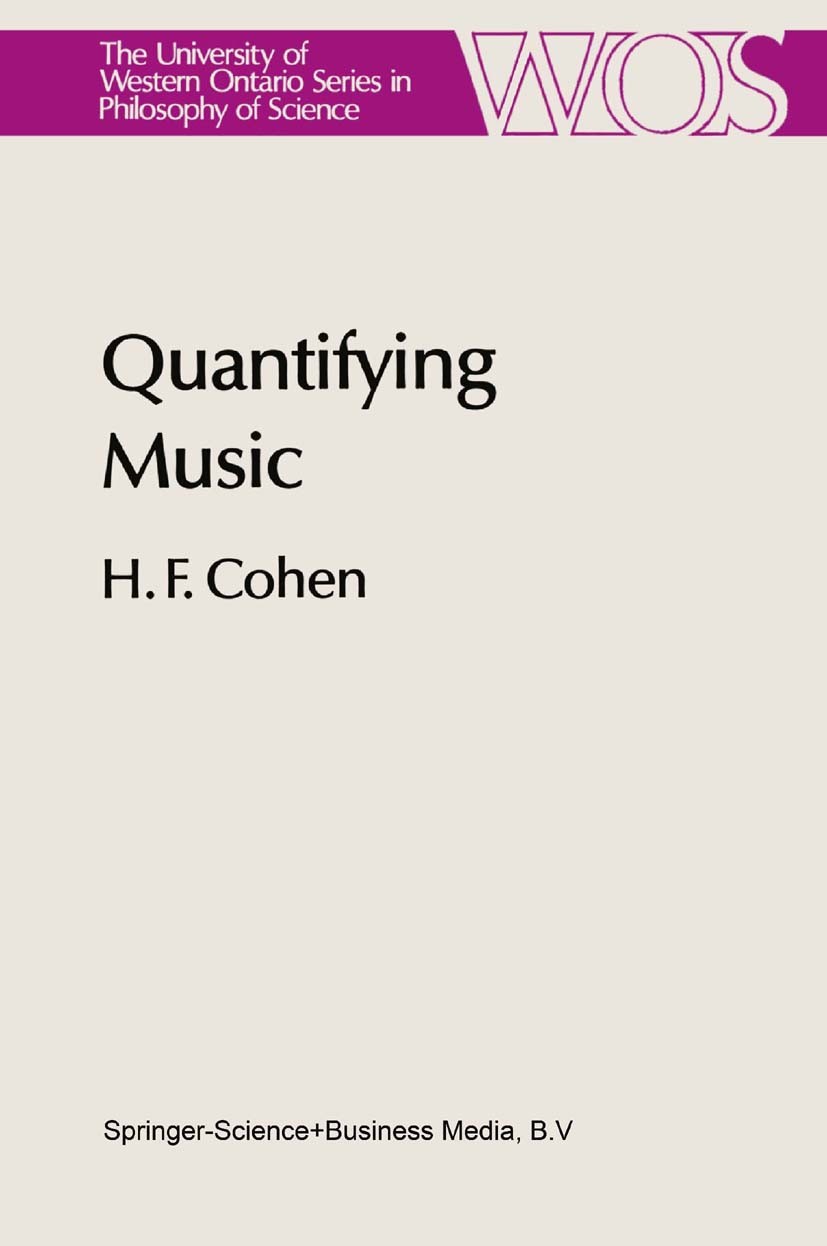| 书目名称 | Quantifying Music | | 副标题 | The Science of Music | | 编辑 | H. F. Cohen | | 视频video | http://file.papertrans.cn/781/780763/780763.mp4 | | 丛书名称 | The Western Ontario Series in Philosophy of Science | | 图书封面 |  | | 描述 | The soul rejoices in perceiving harmonious sound; when the sound is not harmonious it is grieved. From these affects of the soul are derived the name of consonances for the harmonic proportions, and the name of dissonances for the unharmonic proportions. When to this is added the other harmonie proportion whieh consists of the longer or shorter duration of musical sound, then the soul stirs the body to jumping dance, the tongue to inspired speech, according to the same laws. The artisans accommodate to these harmonies the blows of their hammers, the soldiers their pace. As long as the harmonies endure, everything is alive; everything stiffens, when they are disturbed.! Thus the German astronomer, Johannes Kepler, evokes the power of music. Where does this power come from? What properties of music enable it to stir up emotions which may go far beyond just feeling generally pleased, and which may express themselves, for instance, in weeping; in laughing; in trembling over the whole body; in a marked acceleration of breathing and heartbeat; in participating in the rhythm with the head, the hands, the arms, and the feet? From the beginning of musical theory the answer to this question | | 出版日期 | Book 1984 | | 关键词 | Johannes Kepler; music; scientific revolution | | 版次 | 1 | | doi | https://doi.org/10.1007/978-94-015-7686-4 | | isbn_softcover | 978-90-481-8388-3 | | isbn_ebook | 978-94-015-7686-4Series ISSN 1566-659X Series E-ISSN 2215-1974 | | issn_series | 1566-659X | | copyright | Springer Science+Business Media Dordrecht 1984 |
The information of publication is updating

|
|
 |Archiver|手机版|小黑屋|
派博传思国际
( 京公网安备110108008328)
GMT+8, 2025-12-28 02:11
|Archiver|手机版|小黑屋|
派博传思国际
( 京公网安备110108008328)
GMT+8, 2025-12-28 02:11


